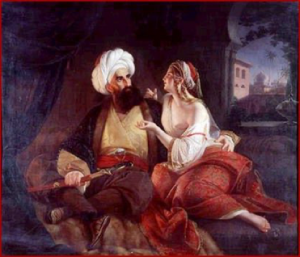 Part of a fascinating [1] short article by Gema Saura released in La Vanguardia (2019) is gathered on the research” Sex and the castle: intimate life in a changing arab world”, by Shereen el Feki, which declares the bedroom as the engine of political modification.
Part of a fascinating [1] short article by Gema Saura released in La Vanguardia (2019) is gathered on the research” Sex and the castle: intimate life in a changing arab world”, by Shereen el Feki, which declares the bedroom as the engine of political modification.
” Sex is a mirror, however it is likewise an engine of change. How empowered can women be in a conference room if they don’t control their own bodies? How can youths lead their societies if they are not entrusted with the info to direct their sex lives? Intimate life is connected to political life. ”
” Islam was constantly a sex-positive faith. Chastity is discredited, and satisfaction is a gift from God, separate from procreation. Birth control and abortion are allowed. There is extensive middle ages erotic literature that commemorates female enjoyment, and even the Prophet Muhammad mentioned foreplay and the importance of females being pleased. ”
The clash with Christian morality was inevitable. “Medieval Europe identified Islam a depraved and libertine religious beliefs,” says the scientist. The irony is that, if we were too saucy before, now we cover ourselves too much. Today we Arabs are seen as repressed individuals who persecute homosexuality, however for centuries we were slammed for the opposite. ”
The Feki sees a legacy of old Orientalism in the far-right’s representation of Arab men today as testosterone bombs that threaten Western women. “It’s a YouTube remix of medieval Christian discourse. Other people’s guys are a risk to our females since they are sexually out of control. It was used by the British in Rhodesia or by the whites in the United States to prohibit intermarriage. ”
The researcher points to the West as the origin of the puritanical Arab turn. Erotica vanishes in the 19th century, with the arrival of the European colonists and their morality. “Actually, when Arab societies were at the peak of their political, economic and cultural power, there was no issue with sex. Today, however, it is just reputable to speak of sex as a disease, a dysfunction, a catastrophe. “
The Feki implicates Islamic fundamentalism of “rewriting history to conceal a more progressive past on sex and females.” The fundamentalist influence has left its mark on the brand-new generations, especially them, warns El Feki, who has actually performed an investigation on guys and masculinity in Egypt, Lebanon, Morocco and Palestine. One of their conclusions is that while girls have a lot more open mindsets than their seniors, men are as or more conservative than their parents and grandparents. “The women enter one instructions, and the young boys, in the opposite. It is reflected in the growing variety of career-minded, ambitious and intelligent ladies who can not find a husband, “she says.
But marriage is likewise forbidden for many out of work kids. “Not marrying indicates not having a sexual life, since marriage is the only area enabled sex.” It generates a double crisis of masculinity, reflects El Feki. “There’s been a lot of discuss how spiritual conservatism shapes and limits women’s lives, but we don’t think about what it does to guys, how it produces impractical expectations of masculinity. I call it salafantasy, “he states, making a play on words with salafism and dream.
Many claim that the Arabs have their sexual transformation pending, but Shereen el Feki is doubtful. “The revolutions do not go very far in the area. I prefer to mention sexual development: an extremely slow and steady change within the limitations of religion, tradition and culture “. Which slow improvement, he keeps, is already underway. Although invisible, due to the fact that in authoritarian routines dissidents should act with discretion, she sees development. For example: more awareness about sexual harassment of women or about the effect of genital mutilation, more groups – albeit private – in defense of LGTBI rights or a surge of websites and publications that deal with sex education without bias.
